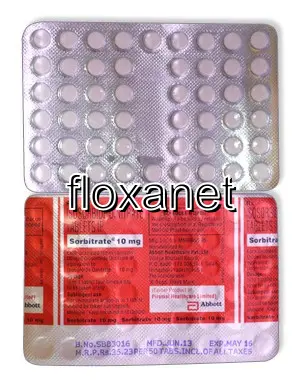Shop Isosorbide Dinitrate Online in Canada
| Package | Dosage | Price | Price per Dose | |
|---|---|---|---|---|
| Dosage: 10mg | ||||
| 360 pill | 10mg | CAD545.40 | CAD1.52 | |
| 180 pill | 10mg | CAD297.31 | CAD1.65 | |
| 120 pill | 10mg | CAD217.77 | CAD1.82 | |
| 90 pill | 10mg | CAD176.11 | CAD1.95 | |
| 60 pill | 10mg | CAD128.76 | CAD2.14 | |
| 30 pill | 10mg | CAD71.95 | CAD2.37 | |

Isosorbide Dinitrate Description
Overview of Isosorbide Dinitrate
Isosorbide Dinitrate is a widely used medication primarily prescribed for the management of angina pectoris, a condition characterized by chest pain due to inadequate blood flow to the heart muscle. As a nitrate, it works by relaxing the blood vessels, which helps to improve oxygen delivery to the heart and reduce the workload on the heart. This medication has been a cornerstone in the treatment of cardiovascular conditions for many years and is valued for its effectiveness in relieving chest pain episodes.
How Does Isosorbide Dinitrate Work?
The pharmacological action of Isosorbide Dinitrate involves converting to nitric oxide within the body. Nitric oxide is a potent vasodilator, meaning it causes blood vessels to widen. When the blood vessels dilate, the resistance against which the heart has to pump decreases. Consequently, the heart requires less oxygen to function, which helps in alleviating angina symptoms. It also reduces preload and afterload, easing the overall strain on the heart. This dual mechanism makes Isosorbide Dinitrate effective both in preventing and treating chest pain episodes.
Proper Usage and Dosage
This medication is typically administered in prescribed doses, often involving sublingual tablets or controlled-release formulations. It is crucial to follow the healthcare provider’s instructions regarding dosage and timing. Sublingual tablets are usually taken at the onset of anginal symptoms for immediate relief, while extended-release formulations are taken regularly to prevent episodes. Avoid exceeding the recommended dose, as excessive intake can lead to adverse effects such as severe headaches or hypotension. Patients should also inform their doctors of all other medications being taken to prevent potential drug interactions.
Possible Side Effects and Precautions
Although Isosorbide Dinitrate is generally well-tolerated, some individuals may experience side effects. Common reactions include headaches, dizziness, and flushing, which are often temporary and diminish as the body adjusts to the medication. Less frequently, some users may experience low blood pressure, nausea, or skin rash. It is important for patients to monitor their response to the medication and report any severe or persistent adverse effects to their healthcare provider. Special caution should be exercised when driving or operating machinery, as dizziness or light-headedness may impair alertness.
Interactions and Contraindications
Isosorbide Dinitrate can interact with various medications, especially other vasodilators, antihypertensives, and phosphodiesterase inhibitors (used for erectile dysfunction). Such combinations can cause a significant drop in blood pressure, leading to dizziness or fainting. Patients with conditions such as severe anemia, increased intracranial pressure, or hypersensitivity to nitrates should avoid using this medication. Before starting treatment, it is essential to inform the healthcare provider about all health conditions and medications to ensure safe use.
Conclusion
Overall, Isosorbide Dinitrate remains an effective and reliable option for managing angina. Its ability to relax blood vessels and improve blood flow makes it an important medication for those at risk of chest pain. However, like all medications, it requires careful use under medical supervision. Adhering to prescribed dosages and being aware of potential side effects can maximize benefits and minimize risks. This medication has helped countless patients improve their quality of life and reduce the frequency and severity of anginal attacks.